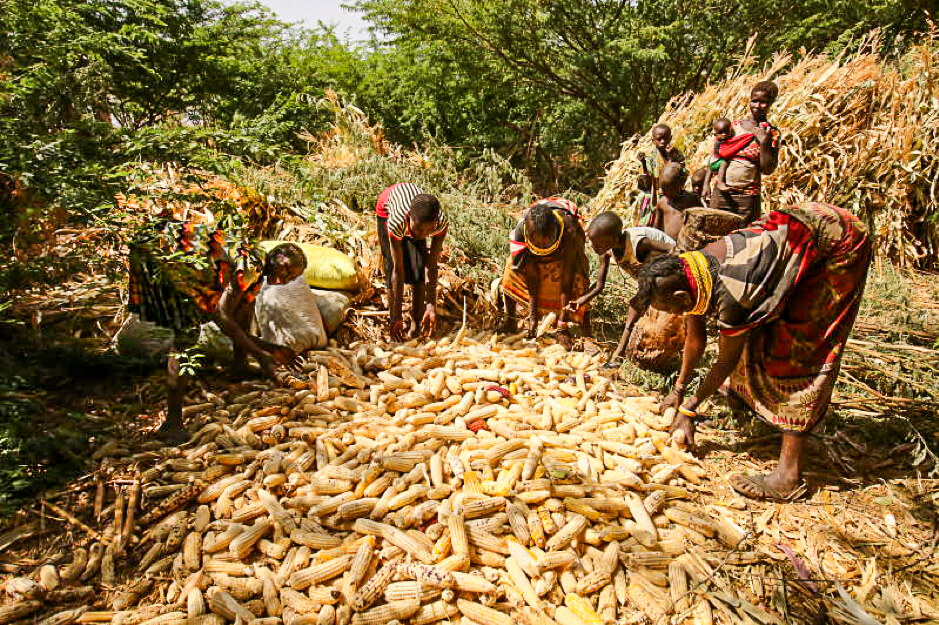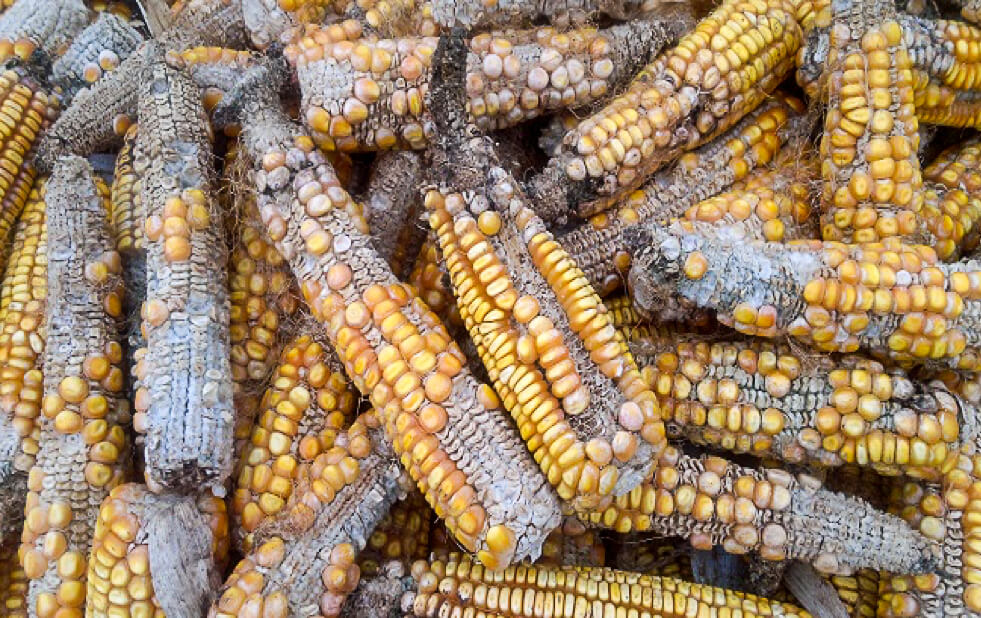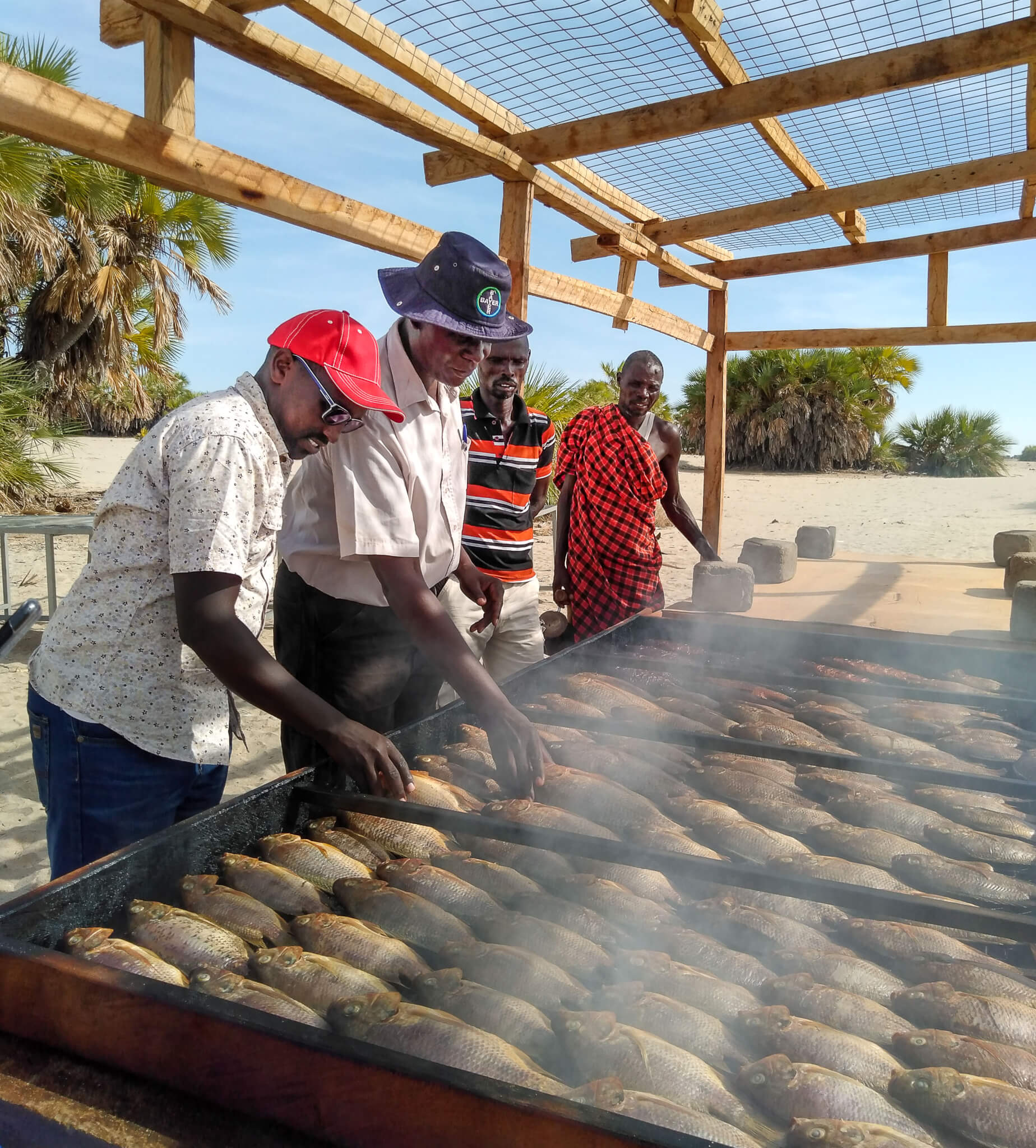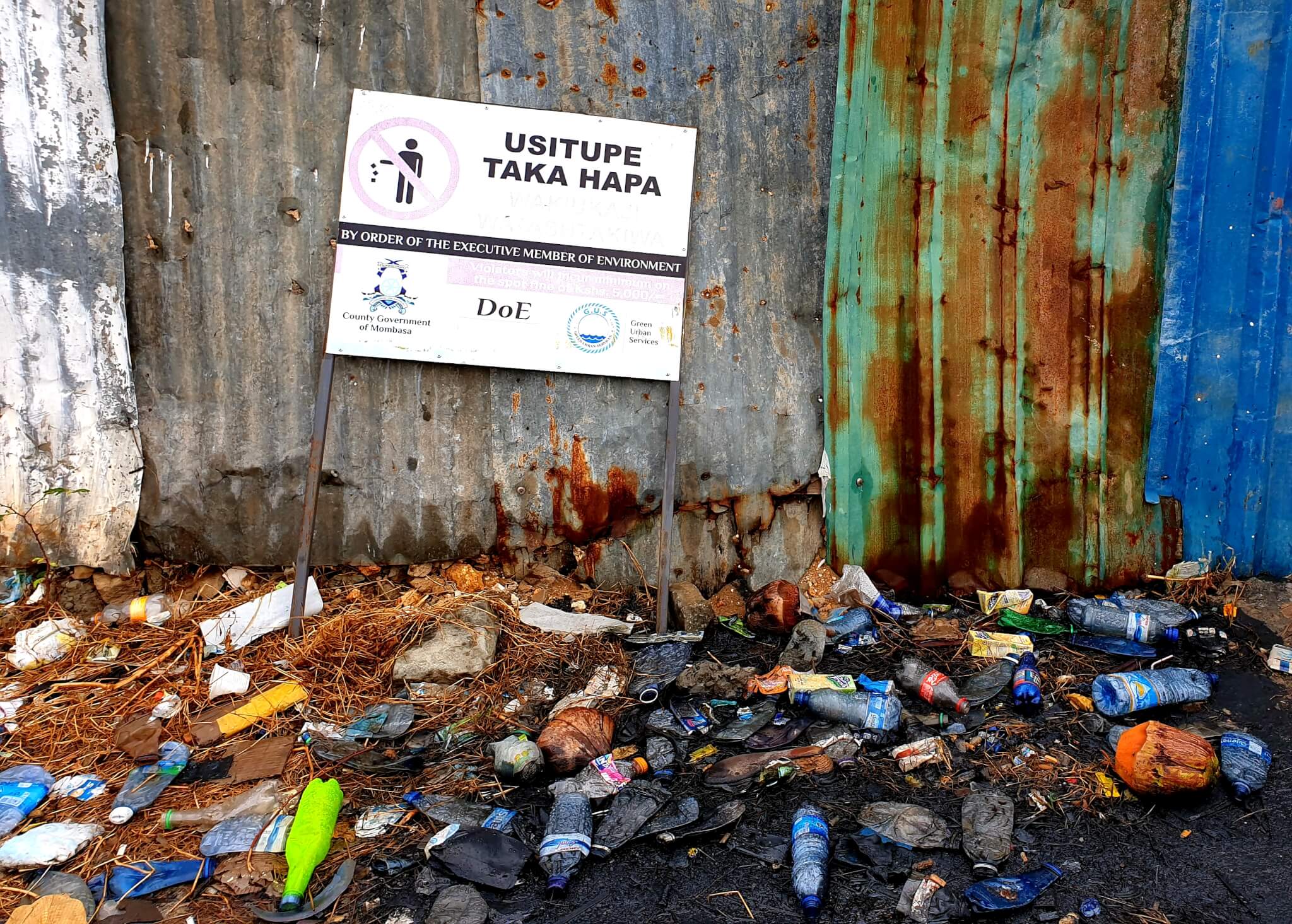Nicholas Pande is the Project Officer at the Council of Anglican Provinces in Africa, based in Nairobi, Kenya. His remit includes food security, health, environmental conservation and climate change adaptation. In this, our third story focusing on waste in different parts of the world, Nicholas talks about two types of waste of particular concern in Kenya and how the country and Anglican Church are tackling them: food waste and – as in our previous two stories from the Pacific and the Middle East – the seemingly ubiquitous problem of plastic waste.
Food waste
“Waste is a real issue on many farms – especially post-harvest loss. So, we have food production, but between the farm and the kitchen a lot of food is lost. It’s a massive problem: every year, Kenya loses about a third of the food it produces through post-harvest losses and food wastage by consumers who buy more than they need. According to Kenya National Bureau of Statistics, growers lost over 1.9 million tonnes of food in 2017 – worth KSh150 billion (roughly US$1.5 billion). We want to address that kind of waste. It’s an aspect of waste that isn’t taken seriously but it’s important because some parts of the country have been having gluts while other parts are grappling with scarcity – and even famine.”
What are the drivers for this food waste?
“First, there are factors to do with individual producers – such as their low capacity for post-harvest management. So the producers produce but have problems due to poor storage and handling, transport, and fungal attack. Some producers simply lack knowledge; some lack proper facilities.
“Maize, Kenya’s staple food, has been the hardest hit, with farmers losing Sh29.6 billion (US$290 million) in 2017 to post-harvest wastage. Rodents and poor handling contributed to this loss and the harvest was also affected by aflatoxin, a toxin produced by fungi due to exposure to moisture.
“There are issues to do with knowing the right temperature to dry maize before storing it and how to do it properly. The same is true for rice: how do you do it? What are the right temperatures? Do producers actually have the capacity to measure the temperature before taking it to the storage facility? Some of them don’t; they have neither the knowledge nor the facilities. So they produce, but it isn’t stored properly and it ends up going to waste.
“Then there are issues to do with the co-ordination and management of food stocks by national bodies. Last year the government had to dispose of 750,000 bags of maize from its silos because it hadn’t been preserved properly. Each bag weighs 90kg, enough to feed one person for a whole year. Then this year there has been famine in Turkana county and 17 other counties had to appeal for food aid. So those 750,000 bags could have fed 750,000 people for a year with what was wasted.”
Is the Church involved in tackling food waste?
“Yes. The Church is involved in issues of food security, and is trying to build the capacity of communities, training them in post-harvest management and storage. For example, the Church has been promoting the use of a particular type of storage bag that is recommended for the storage of maize, so it doesn’t get affected by aflatoxin. The Anglican Church of Kenya does this work through its development wing, Anglican Development Services (ADS), sending workers into the field and using its platforms. In a bid to establish sustainable food systems, ADS trains farmers on sustainable agronomic practices as well as food preservation and optimum utilization. It builds capacities of producers on produce harvesting, processing, preservation and utilization.”
Plastic waste
“Another area of waste getting attention nationally is plastic waste. As a country we felt that discarded plastic was really hurting the environment – so much so that in 2017 the Government of Kenya banned plastic bags. It is currently illegal to hold a plastic bag in Kenya. But other waste remains a huge problem. In Nairobi, Dandora is the place where rubbish is put into landfill. It’s an eye-sore. There is lots of waste there; it’s not recycled. It’s suffocating everyone around that area and there is very poor public health there.
“There is also the problem of plastic waste getting into the Indian Ocean and that is having an effect on the marine life and tourism sceneries along the coastal beaches. It’s been environmentally devastating. That’s what led to the government’s ban on plastic bags, but plastic bottles are still in production and plastic packaging is still in circulation.”
What impact is the plastic bag ban having?
“Gradually the effect is picking up. Things have improved significantly. We used to have plastic everywhere. In urban areas plastic that had not been properly disposed of blocked drains, causing flash floods. Now we don’t have that so much as the drainage has improved. The waste in the oceans and lakes is also going down.
“The government is now implementing a ban on non-woven bags, effected in April 2019, phasing out the reusable carrier bags that replaced the plastic ones, in an ongoing attempt to get on top of the problems caused by bags. Non-woven carrier bags were a stop-gap measure to help in the absence of plastic bags in a 2-year transition period after which they have now been replaced with carrier bags made from reed, cotton, sisal, recycled plastic material, recycled paper, papyrus, woven plastic bags, hyacinth, and hard plastic.
“And the government is also trying to increase the amount of plastic that gets recycled; the country’s first recycling plant for plastic is currently under construction, the government working in partnership with companies like Unilever and Coca Cola. The aim is to increase the amount of plastic that gets recycled from the current level of 5% to a target of 70% by the year 2025.”
How have people reacted to the ban?
“Initially people had some anxiety about how they would manage without plastic bags and when the plastic bag ban first came into effect there were jokes and memes about people having to carry things in their hands when the supply of the new bags didn’t match demand. But now it’s appreciated that there are no plastic bags and it’s not a big issue.”
What has the role of the Church been in tackling waste?
“The Church has been involved locally, sensitising people to managing waste and disposing it with sensitivity to the environment. The Church has always approached it from the angle that we have the responsibility to steward the environment, so don’t dispose waste irresponsibly; don’t waste food because there are people who need that food and it’s a privilege for us to have food. So the Church has had the messaging across the congregations that waste is not godly.”
The Anglican Alliance connects and equips the worldwide Anglican family to work for a world free of poverty and injustice and to safeguard creation.
This piece is the third in a short series focusing on the problem of waste in different parts of the world, as seen through the eyes of people who live there. The series coincides with the launch of Renew Our World‘s new campaign on waste. The Anglican Alliance is a founder member of Renew Our World and is mandated to connect and equip Anglicans across the Communion to safeguard the integrity of creation, the fifth Anglican mark of mission.
Take action by getting involved in Renew Our World’s waste campaign: details here.
And see our prayer and worship resources on creation care here.




